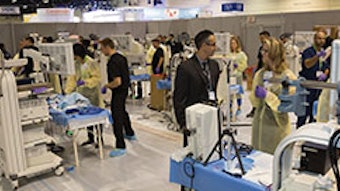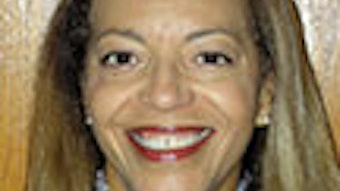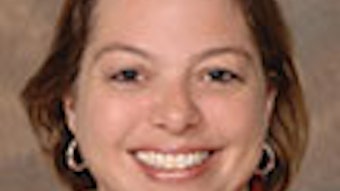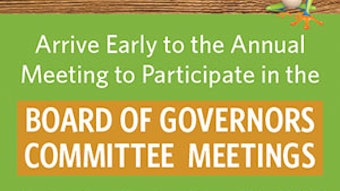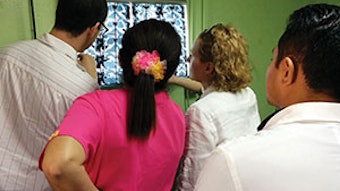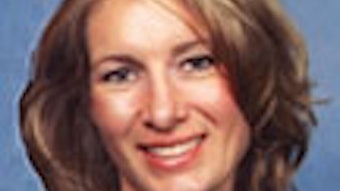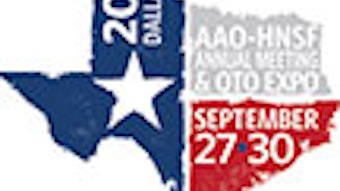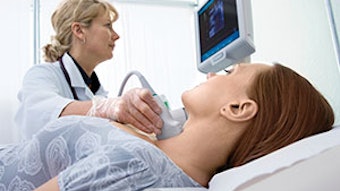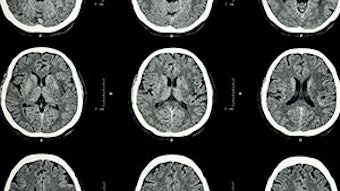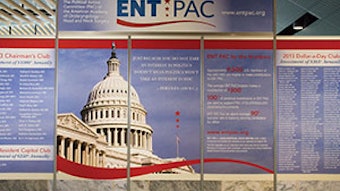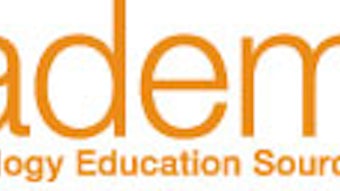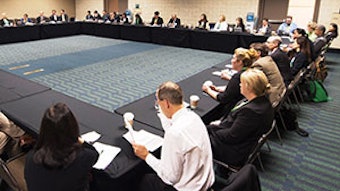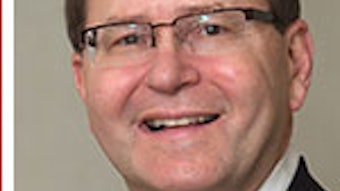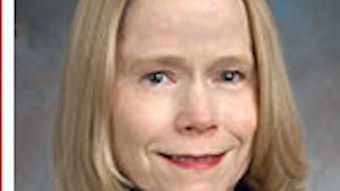A whirlwind, worthwhile year
I have had a rather eventful year since being named as one of the 2014 Health Policy Scholars from the American College of Surgeons (ACS) and American Academy of Otolaryngology—Head and Neck Surgery. Prior to receiving this award I had had a long history of activity as a leader within the AAO-HNS, particularly in the social economic and health policy arena.
By James C. Denneny III, MD
I have had a rather eventful year since being named as one of the 2014 Health Policy Scholars from the American College of Surgeons (ACS) and American Academy of Otolaryngology—Head and Neck Surgery. Prior to receiving this award I had had a long history of activity as a leader within the AAO-HNS, particularly in the social economic and health policy arena. I had also been on the executive committee of the Board of Governors of the ACS for three years. I was the pillar lead for health policy and advocacy and a member of the Health Policy and Advocacy Group (HPAG). At the time of the announcement of the award, I had applied to become the Executive Vice-President/CEO of the AAO-HNS. I subsequently was chosen for that position. I believe that my participation in the Health Policy Scholars program had a positive influence in that selection.
The actual course exposed me to a different perspective of problems I’d been dealing with for a number of years. The opportunity to understand some of the economic principles behind policies affecting healthcare both on a national and regional level was invaluable. The economic model used to develop policies was particularly helpful to me. I also enjoyed the section on negotiation a great deal. That is a particularly important part of my current employment. The case analysis done throughout the week was instructive and carried significant long-term benefit. Overall, I don’t think I’ve ever learned as much in a single week as I did during my time at Brandeis.
Following the completion of the course, I transitioned from coordinator for Socioeconomic Affairs of the AAO-HNS to my new role as Executive Vice-President/CEO, which I began in November 2014. During that time I was active as chair of our 3P (Physician Payment Policy) group, which oversees advocacy and health policy activities for the AAO-HNS. I was very active in advocacy related to SGR repeal activities. During that time I also attended AMA, CMSS, and ASAE meetings in addition to the AAO-HNS Annual Meeting and the Clinical Congress of the ACS. I was also active as a member of the HPAG and pillar lead of the Advocacy and Health Policy pillar of the Board of Governors. I subsequently was named Secretary of the Board of Governors of the ACS. That afforded me the opportunity to participate on the Board of Regents as well as the Finance Committee of the ACS. My experiences at the Brandeis course help me immensely in my advocacy efforts both at the ACS and AAO-HNS. I feel that my skill set in policy development and promotion has increased significantly since completing the course. This is particularly valuable in my role as the Executive Vice-President of the AAO-HNS, where I make almost daily decisions relating to health policy, education, and member needs. Prior to my departure from the University of Missouri Department of Otolaryngology-Head and Neck Surgery, I presented a series of five lectures on social economic topics related to my experience at the Brandeis course.
I attended the recent Advocacy and Leadership Summit in Washington, DC, April 18-21. I participated in Board of Governors Activities as well as the HPAG meeting. I have been a regular attendee at that meeting and enjoyed the educational opportunity as well as our Board of Governors activities. Now that I live in the Washington, DC, area I have been a frequent visitor to multiple congressional offices through activities of the AAO-HNS. I hope I have been able to increase interest both in members of the ACS and AAO-HNS in participation in advocacy and health policy efforts. I am a member of the PAC for both organizations. I did attend the PAC event held during the Leadership Summit. My favorite talk of the Summit was by retired Gen. Stanley McChrystal as he advocated for a change in thought strategy that could be applied to the healthcare situation. I thought it was quite compelling and agreed that that type of analysis would benefit the healthcare system as reform progresses. My feeling is that the program has continually been upgraded on a yearly basis since I’ve been attending it.
When I took the Health Policy Scholars course I had already had a significant interest and given many years of my time toward participation both in advocacy and health policy for medicine. The course has only served to reinforce my opinion that physician participation in these activities is essential to the best patient outcomes that can possibly be achieved through system reform. In reviewing the information from the course, there really is a lack of perspective from actual practitioners and patients in the decision-making process of many of the policies we deal with today. That is why I think it is essential that physicians bring that needed perspective to represent our patients and what is optimal for them. I did feel the amount of knowledge I gained from the economic perspective and non-physician perspective serves me well in that I am better suited to craft a message that can be understood and valued by those non-physician policymakers. Our ability to successfully influence them and stay actively involved in the decision-making process will ultimately determine how the new healthcare system is constructed and plays out for our patients. I’m extremely grateful to have been given the opportunity to participate in this course, and, as you can see by my change in career, I will use the knowledge I gained in this course with much more frequency and influence than when I was practicing otolaryngology at an academic institution.
I used the scholarship money to attend the course in Boston (tuition, airfare, hotel, meals), to attend the CMSS meeting in November prior to my employment with the AAO-HNS, for expenses not covered for the Clinical Congress and HPAG meetings, and for subscriptions to Health Affairs and the Harvard Business Review.

